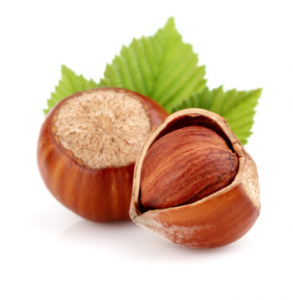Are you always on-the-go? Looking for a nutritious, quick snack? Look no more: raw, organic nuts in moderation are a near perfect option. With healthy fats, fiber, plant sterols and many vitamins and minerals, nuts pack a powerful nutritional punch, all wrapped up in a tiny bite-sized package. It is important to note that roasted nuts do not have quite the same health benefits as the raw version we are speaking about in this article. For a perfect balance, combine nuts with a raw fruit or vegetable of your choice. No cooking or refrigeration.
Nuts Support Heart Health, Lower Diabetes & Metabolic Syndrome Risk
A recent epidemiologic study involving more than 13,000 people, published in the Journal of the American College of Nutrition, revealed that nuts offer many benefits for your health, even reducing your risk of serious chronic disease. Those who ate RAW nuts gained numerous benefits compared to non-nut eaters, including:
- Decreased body mass index and waist circumference
- Lower systolic blood pressure
- Lower weight
- Less likelihood of having two risk factors for metabolic syndrome: high blood pressure
- and low HDL (good) cholesterol (for nut consumers)
- Less likelihood of having four risk factors for metabolic syndrome: abdominal obesity, high blood pressure, high fasting glucose and a lower prevalence of metabolic syndrome (for tree nut consumers)
 Other research has further proven that nuts, such as almonds, confer superior heart health benefits to complex carbs like whole-wheat muffins; a study in the journal Circulation found people with abnormally high level of lipids, such as cholesterol, in their blood, were able to significantly reduce their risk factors for coronary heart disease by snacking on whole almonds. Those who snacked on whole-wheat muffins got no such benefit. It’s likely that nuts impact your heart health in numerous ways. For instance, many (walnuts, hazelnuts, pecans, Brazil nuts, almonds, cashews and peanuts) contain the amino acid l-arginine, which offers multiple vascular benefits to people with heart disease, or those who have increased risk for heart disease due to multiple cardiac risk factors. L-arginine is a key nutrient in promoting efficient blood flow and overall cardiovascular function. L- arginine is considered one of the “semi-essential” amino acids—meaning, often your body can’t produce it in sufficient quantities, so you must obtain adequate quantities from your
Other research has further proven that nuts, such as almonds, confer superior heart health benefits to complex carbs like whole-wheat muffins; a study in the journal Circulation found people with abnormally high level of lipids, such as cholesterol, in their blood, were able to significantly reduce their risk factors for coronary heart disease by snacking on whole almonds. Those who snacked on whole-wheat muffins got no such benefit. It’s likely that nuts impact your heart health in numerous ways. For instance, many (walnuts, hazelnuts, pecans, Brazil nuts, almonds, cashews and peanuts) contain the amino acid l-arginine, which offers multiple vascular benefits to people with heart disease, or those who have increased risk for heart disease due to multiple cardiac risk factors. L-arginine is a key nutrient in promoting efficient blood flow and overall cardiovascular function. L- arginine is considered one of the “semi-essential” amino acids—meaning, often your body can’t produce it in sufficient quantities, so you must obtain adequate quantities from your
Will Eating Nuts Make You Fat?
The short answer to this question is, no! It’s one of the biggest nutritional myths of all times that eating a food high in healthy fat will make you fat. If you’re watching your weight, a small handful of nuts like almonds is a better snack choice than a snack high in complex carbohydrates, such as a bran muffin. In one study comparing those who ate a low-calorie diet that included either almonds or complex carbs, the almond group had a:
- 62 percent greater reduction in their weight/BMI
- 50 percent greater reduction in waist circumference
- 56 percent greater reduction
in body fat
A separate study in the journal Obesity also found that eating nuts two or more times per week was associated with a reduced risk of weight gain.
Eat your heart out!!
